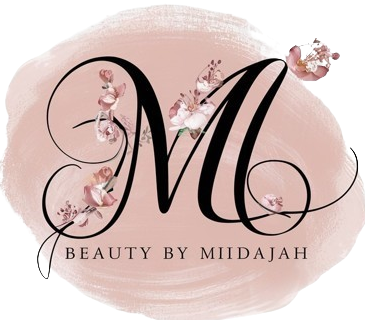If you enjoy crossword puzzles, you’ve probably come across clues that require knowledge of everyday items, including beauty and skincare products. One common crossword clue that might pop up is “ingredient in some exfoliators.” If you’re stuck on this clue, this article will give you the answer and take a closer look at exfoliators, their ingredients, and how they benefit your skin.
What is an Exfoliator?
An exfoliator is a skincare product designed to remove dead skin cells from the surface of your skin. The process of exfoliation helps keep your skin looking fresh, smooth, and radiant. It can also improve skin texture and prevent clogged pores, which reduces the chance of acne and blemishes.
There are two main types of exfoliators:
- Physical exfoliators: These contain tiny particles or granules that manually scrub away dead skin.
- Chemical exfoliators: These use acids or enzymes to dissolve dead skin cells without any scrubbing.
Both types have their own benefits, but the key is using them correctly based on your skin type.
Common Ingredients in Exfoliators
Let’s dive into some of the most common ingredients you’ll find in exfoliators, especially if you’re trying to solve a crossword puzzle clue.
1. Sugar
Sugar is a popular ingredient in physical exfoliators. It’s natural and gentle on the skin. The small granules help to buff away dead skin without being too harsh. Sugar is often combined with oils or other hydrating ingredients to create an effective scrub.
- Crossword hint: The word sugar can be a great fit for the clue “ingredient in some exfoliators.”
2. Salt
Salt is another common physical exfoliator ingredient. It works similarly to sugar by scrubbing away dead skin cells. Salt also has antibacterial properties, making it ideal for oily or acne-prone skin. Salt scrubs can be a bit more abrasive than sugar scrubs, so they are usually used on the body rather than the face.
- Crossword hint: If the clue is about an exfoliator ingredient, the word salt might be the answer.
3. Microbeads (formerly)
Microbeads were once commonly used in physical exfoliators. These small plastic beads helped scrub the skin, but due to environmental concerns, they’ve largely been phased out. Many countries have banned them because they are not biodegradable and contribute to plastic pollution in oceans and waterways.
- Crossword hint: Although they are no longer used, you might see microbeads as a crossword answer in older puzzles.
4. Alpha Hydroxy Acids (AHAs)
AHAs are a group of chemical exfoliants that include glycolic acid, lactic acid, and citric acid. These acids work by dissolving the glue that holds dead skin cells together, allowing them to slough off more easily. AHAs are effective for improving skin texture, reducing fine lines, and brightening the complexion.
- Crossword hint: AHAs or glycolic can be used as a clue for chemical exfoliants in some puzzles.
5. Beta Hydroxy Acid (BHA)
Salicylic acid is the most common BHA used in exfoliators. It’s especially good for treating acne and oily skin because it penetrates deeper into the pores to remove excess oil and dead skin. It also has anti-inflammatory properties, making it a great option for sensitive or acne-prone skin.
- Crossword hint: BHA or salicylic might be the answer to a crossword clue related to exfoliators.
6. Jojoba Beads
Jojoba beads are small, round particles made from jojoba oil. Unlike microbeads, these are biodegradable and safe for the environment. Jojoba beads offer a gentle exfoliating experience, making them suitable for sensitive skin.
- Crossword hint: Jojoba could be the answer to an exfoliator ingredient clue in your crossword puzzle.
7. Pumice
Pumice is a volcanic rock that’s ground into fine particles and used in exfoliating scrubs. It’s an effective exfoliant for rough areas like feet and elbows but may be too harsh for the face.
- Crossword hint: The word pumice can often be a correct answer for the exfoliator ingredient clue.
8. Enzymes
Papaya and pineapple enzymes are popular ingredients in some chemical exfoliators. They break down dead skin cells without the need for scrubbing. These enzymes are natural and gentle, making them ideal for people with sensitive skin.
- Crossword hint: The words enzyme, papaya, or pineapple can be relevant answers when dealing with natural exfoliant crossword clues.
Why Exfoliation Matters for Your Skin
Exfoliation plays a key role in maintaining healthy skin. Here’s why:
1. Removes Dead Skin Cells
As skin cells regenerate, old cells die and accumulate on the skin’s surface. If these dead cells aren’t removed, they can make your skin look dull, dry, and uneven. Exfoliating helps to clear these cells away, revealing fresher, smoother skin underneath.
2. Prevents Acne
Dead skin cells can clog pores, leading to acne, blackheads, and other breakouts. Regular exfoliation helps keep pores clear and reduces the chance of acne flare-ups, especially for people with oily or acne-prone skin.
3. Improves Product Absorption
When dead skin cells are left on the surface of the skin, they can block the absorption of other skincare products like serums and moisturizers. Exfoliating helps improve the penetration of these products, allowing them to work more effectively.
4. Evens Skin Tone
Exfoliating can help reduce the appearance of dark spots, hyperpigmentation, and uneven skin tone. By removing the top layer of dead skin, exfoliation encourages new cell growth and a more uniform complexion.
5. Boosts Collagen Production
Exfoliating stimulates the production of collagen, a protein that gives skin its firmness and elasticity. This can help reduce the appearance of fine lines and wrinkles, giving skin a smoother, more youthful look.
How Often Should You Exfoliate?
While exfoliating is important, overdoing it can cause irritation and damage to the skin. Here’s a general guide on how often you should exfoliate based on skin type:
- Oily or acne-prone skin: 2-3 times per week
- Normal or combination skin: 1-2 times per week
- Dry or sensitive skin: Once a week or less
Always listen to your skin. If you notice redness, irritation, or dryness, reduce the frequency of exfoliation and switch to a gentler product.
How to Choose the Right Exfoliator for Your Skin
Not all exfoliators are created equal. It’s important to choose the right one based on your skin type and concerns.
1. For Dry Skin
Look for exfoliators that contain hydrating ingredients like glycerin or hyaluronic acid. Avoid harsh physical scrubs and opt for gentle chemical exfoliants like lactic acid, which is less likely to dry out your skin.
2. For Oily Skin
People with oily skin can benefit from stronger exfoliators like salicylic acid (BHA), which helps remove excess oil and unclog pores. Physical scrubs with salt or sugar can also be effective.
3. For Sensitive Skin
If you have sensitive skin, choose exfoliators with gentle ingredients like jojoba beads or enzyme-based exfoliants. Avoid harsh scrubs and strong chemical exfoliants that could cause irritation.
4. For Combination Skin
Those with combination skin should use a mix of both chemical and physical exfoliators. AHAs and BHAs are good options for treating oily areas without drying out the rest of the skin.
Exfoliation and Environmental Concerns
While exfoliating is beneficial for the skin, some exfoliator ingredients have raised environmental concerns. Microbeads, for example, were widely used in exfoliators but caused significant harm to marine life because they aren’t biodegradable. Fortunately, many companies have replaced microbeads with natural and biodegradable alternatives like jojoba beads and ground apricot kernels.
When choosing an exfoliator, consider both your skin and the environment. Opt for products that use natural, eco-friendly ingredients.
Conclusion
If you’re stuck on a crossword puzzle that asks for an “ingredient in some exfoliators,” you now have several potential answers. Common ingredients like sugar, salt, AHAs, and salicylic acid are frequently used in exfoliating products, and they make for great crossword clues.
Understanding the different ingredients in exfoliators can also help you make better skincare choices. Whether you prefer physical scrubs or chemical exfoliants, using the right exfoliator for your skin type will help keep your skin clear, smooth, and healthy.

